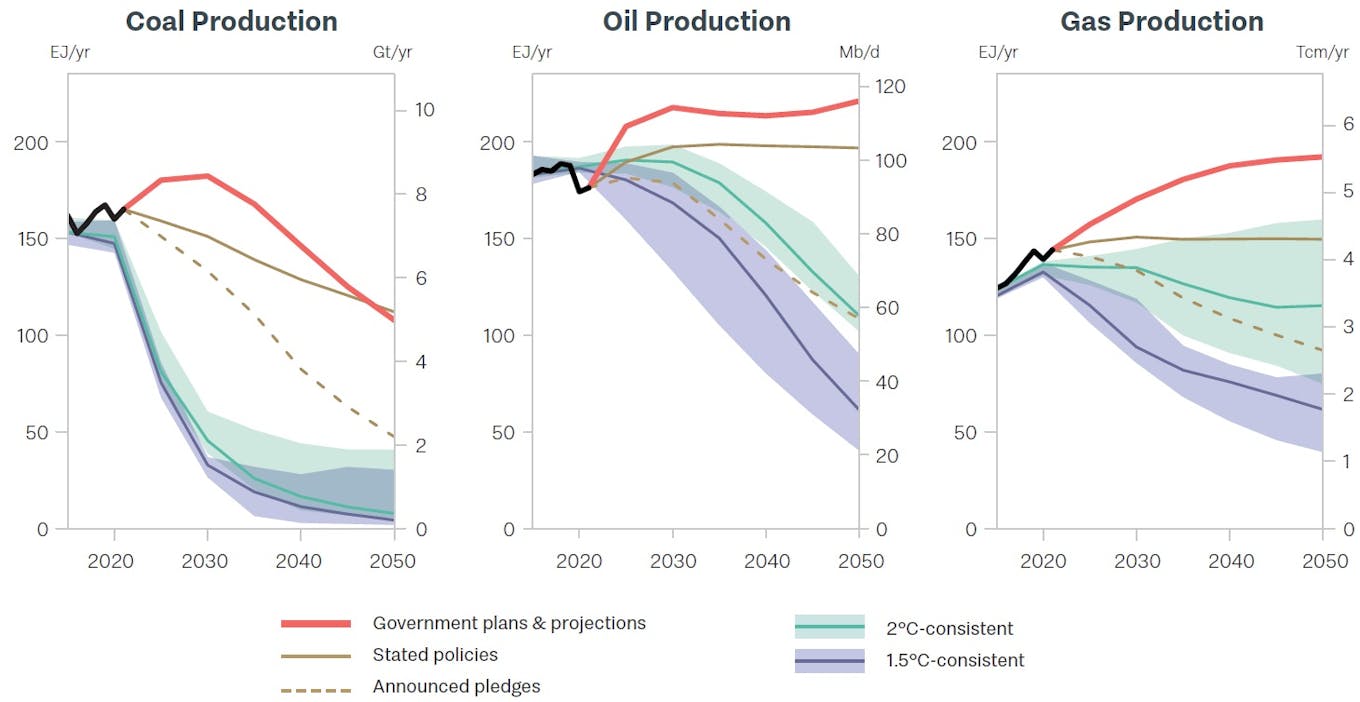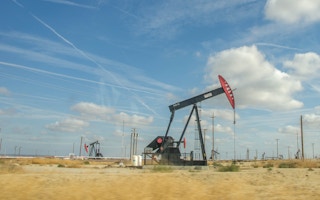The world’s major fossil fuel producing countries intend to extract 110 per cent more fossil fuels in 2030 than the limit for keeping global warming to 1.5°C above pre-industrial levels. Coal, in particular, is 460 per cent over the threshold.
To continue reading, subscribe to Eco‑Business.
There's something for everyone. We offer a range of subscription plans.
- Access our stories and receive our Insights Weekly newsletter with the free EB Member plan.
- Unlock unlimited access to our content and archive with EB Circle.
- Publish your content with EB Premium.
Even if compared with a higher 2°C warming scenario – which countries globally have pledged to steer well clear of – planned production will still be almost 70 per cent over budget, according to a report published Wednesday.
The study by non-profits Stockholm Environment Institute, Climate Analytics and E3G, along with think-tank International Institute for Sustainable Development and the United Nations Environment Programme, studied the plans of 20 of the world’s biggest coal, oil and gas producing countries that supply 80 per cent of the world’s fossil energy.
The authors say such trends fly in the face of many of the countries’ own net-zero emissions ambitions, and clash with expectations that global demand for fossil fuels will soon peak.
They add that the fossil fuel trajectory up to 2030 has not discernibly changed since the first of such assessments were published in 2019 – before many of the countries published their climate pledges.
“On top of economic insanity, it is a climate disaster of our own making,” said Neil Grant, report co-author and analyst at Climate Analytics.
According to the report, India has the largest planned increase in coal production up to 2030, at 10.7 exajoules (EJ), or 50 per cent of its current consumption levels. Russia comes second (+3.2 EJ), followed by Indonesia (+2.5 EJ).
China – the biggest producer today – and the United States have large coal cuts planned, of 5.3 EJ and 5.1 EJ respectively.
But the United States, along with Brazil and Saudi Arabia, will considerably scale up oil production, at over 5 EJ each. Few countries have steep cuts planned; Norway will be the biggest slider, with a 0.5 EJ drop.
Similarly, only Norway and the United Kingdom plan small cuts in gas production, while most other major producers, led by Qatar (+3.9 EJ), Russia (+3.3 EJ), China and Nigeria (both +2.6 EJ) plan to increase production.
“
On top of economic insanity, it is a climate disaster of our own making.
Neil Grant, Production Gap Report co-author and analyst at Climate Analytics
Looking ahead to 2050, coal production is expected to drop 35 per cent, instead of over 90 per cent that scientists on the United Nations’ Intergovernmental Panel on Climate Change say is needed to keep under 1.5°C of global warming.
Over the same period, oil production will rise 25 per cent instead of dropping 65 per cent, while gas – often termed a cleaner “transition” fuel as the world moves away from coal – will increase 30 per cent instead of dropping 55 per cent.

Image: Production Gap Report 2023.
“Many governments are promoting fossil gas as an essential transition fuel but with no apparent plans to transition away from it later,” said lead author Ploy Achakulwisut from the Stockholm Environment Institute.
“Governments are literally doubling down on fossil fuel production; that spells double trouble for people and the planet,” said United Nations secretary-general Antonio Guterres.
“COP28 must send a clear signal that the fossil fuel age is out of gas,” Guterres added, referring to the global climate summit later this month hosted by the United Arab Emirates.
While senior COP28 officials have said that a fossil fuel “phase down” is inevitable and essential, environmentalists fear that ambitious commitments will be hard to come by with the fossil fuel industry also welcomed to the conference.
There has also been greater attention within the oil and gas industry to address fuel emissions through technologies such as carbon capture – which critics say is unreliable – rather than scaling down production. Countries and energy firms have said cutting supply will impact global energy security; fossil fuels today meet three-quarters of the world’s energy needs.
Scientists say the world could breach the 1.5°C warming limit this decade, while current policies will result in an approximate 2.5°C temperature rise by 2100, resulting in worsening extreme weather and human suffering.
Meanwhile, 2023 is expected to be the warmest year on record, and this July could be the hottest month for the past 120,000 years.










